THEME ➀
Advancement of Heart Disease Research
Laying the Groundwork for Digital Bio Innovation
Professor Dongtak Jeong
Department of Molecular Life Science
Professor Dongtak Jeong is not a doctor but he researches heart disease. He was selected for the “Bio-Medical Technology Development Project” launched by the Ministry of Science and ICT, and is currently conducting research to discover biomarkers for cardiovascular diseases through big data and AI analysis. He is also seeking to develop innovative treatments. Since the research is being carried out by a small group, we met with Prof. Jeong to discuss his excellent capabilities for conducting heart disease research.
- Written by · Yeong-im Park
- Photos by · Cho-won Son
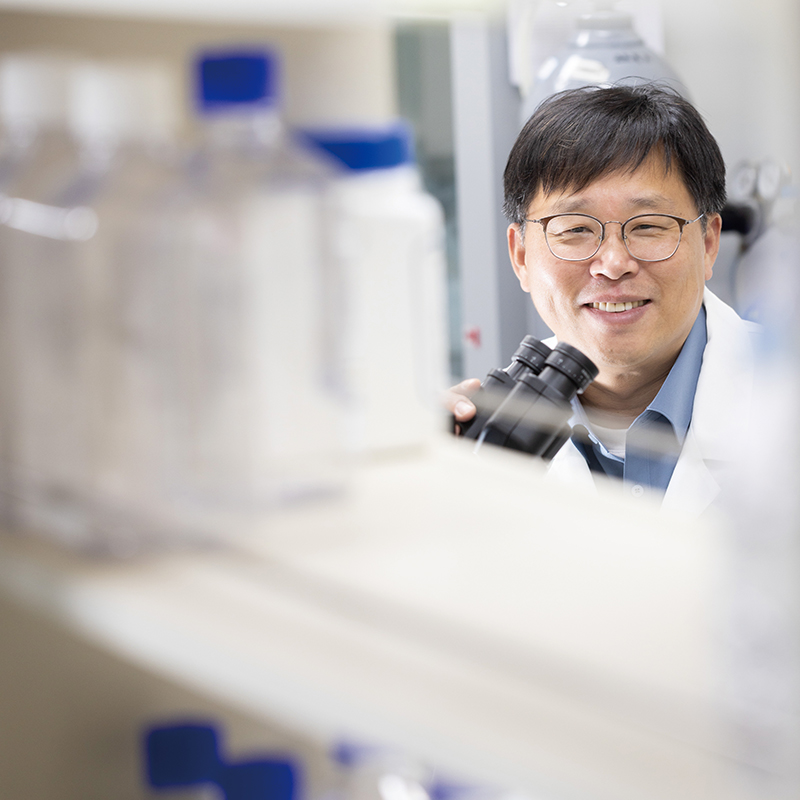
Heart Disease, the No. 1 Cause of Death Worldwide
Although the number one cause of death in Korea is cancer, cardiovascular disease is the leading cause of death worldwide (number two in Korea). However, no definitive treatment has been developed thus far, so early diagnosis and prevention must be prioritized. Therefore, advanced countries like the United States have been investing significantly in cardiovascular diseases for a long time. However, in Korea, only a few researchers are focused on heart disease research due to a lack of recognition of its importance compared with cancer research, as well as a lack of animal model technology and infrastructure.
One of Korea's researchers of heart disease is Prof. Dongtak Jeong. In the early 2000s, Prof. Jeong learned heart disease research techniques at Harvard University and the University of Tokyo. After joining ERICA, he developed ultrasound equipment to measure heart pressure and volume, and animal model surgery, and gathered personnel and equipment to focus on researching and developing treatments for mechanisms of heart disease, such as calcium regulation abnormalities and heart fibrosis. Even in Korea's barren research environment for that field, Prof. Jeong remained passionate. Recently, however, the Ministry of Science and ICT launched the “Bio-Medical Technology Development Project” to develop new treatments for difficult-to-treat diseases like heart disease, which has given heart disease research a boost. The Bio-Medical Technology Development Project is a government initiative to develop core technologies in promising future biofields, such as stem cells, genomics, and medical technologies. Prof. Jeong made the following comments in this regard:
“The fact that a large-scale research fund of 4 billion won has been invested amid a reduction in basic research investment is encouraging. The phase 3 project I am involved in is the Biobank project, which is based on data science by the UK government. The goal is to discover biomarkers and develop therapeutic substances through big data analysis, focusing on intractable diseases like cardiovascular diseases and cancer.”
Globally, gene therapy and personalized treatment through multi-omics analysis are gaining attention. Prof. Jeong's research team, selected for the Bio-Medical Technology Development Project, is conducting multi-omics analysis of heart failure patients and animal models to discover specific biomarkers. He hopes to be able to diagnose diseases early and to develop treatment technologies by controlling these biomarkers. This is expected to significantly advance heart disease research and drive digital bio innovation.
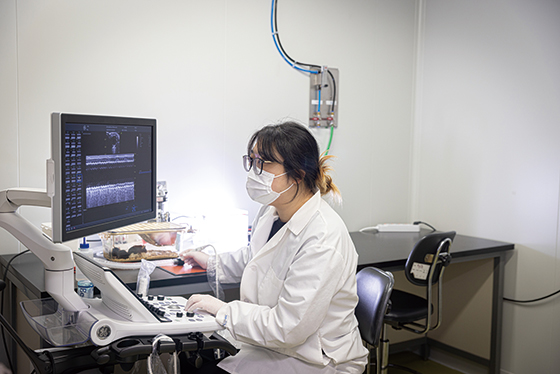
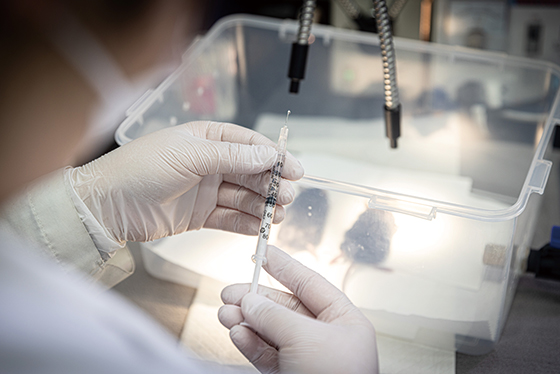
While current treatments
mainly relieve symptoms,
gene therapies and biomarker-based
treatments provide fundamental
and long-term treatments.

Combining 4th Industrial Revolution Technologies with Heart Disease Research
Prof. Jeong continued by saying: “Heart disease research, in fact, receives the most funding globally. While the research environment in Korea is not as advanced as in countries like the United States, research based on big data and AI is active and will help narrow the gap. In this regard, we hope to conduct internationally competitive research.”
The development of advanced technologies like big data and AI is changing the paradigms of bioresearch. We are entering a new era of great transformation in the bioresearch field. By using advanced technologies such as big data and AI algorithms in drug discovery and development, the time needed to find potential treatments can be dramatically reduced. Moreover, as the accuracy of results improves, the chances of success in clinical trials rises.
Prof. Jeong's team was selected for this project by the MSIT because they formed a strong research group that included three leading experts in the big data and AI fields. Through their collaboration they created a bioinformatics team within the research group. While many studies have been conducted on gene expression analysis, the data have typically been scattered. Thus, the team aims to collect and compare data more effectively. Prof. Jeong added:
“The innovation in this research is that we are using multi-omics analysis based on big data and AI to improve diagnosis accuracy and to explore the potential for personalized treatments. While current treatments mainly relieve symptoms, gene therapies and biomarker-based treatments provide an approach to solve the disease's pathogenesis and root causes, offering more fundamental and long-term treatments.”
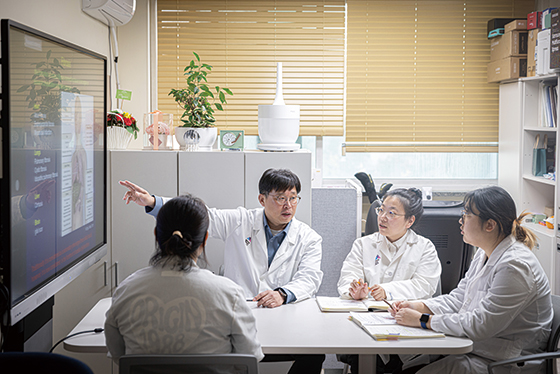 Prof. Jeong is using multi-omics analysis based on big data and AI to improve diagnosis accuracy and the potential for personalized treatments.
Prof. Jeong is using multi-omics analysis based on big data and AI to improve diagnosis accuracy and the potential for personalized treatments.
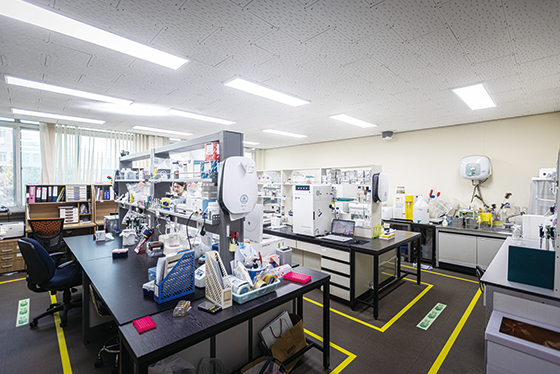 Molecular Medicine Laboratory
Molecular Medicine Laboratory
Innovating the Diagnosis and Treatment of Heart Diseases
In October, the discovery of microRNA (miRNA) and its use to clarify the principles of gene expression regulation by Professor Victor Ambros of the University of Massachusetts and Professor Gary Ruvkun of Harvard Medical School (who won the Nobel Prize in Physiology or Medicine) has further increased interest in miRNA therapeutics. This area is seen as the next-generation treatment for intractable diseases. Prof. Jeong discovered ‘miR-25,’ an important miRNA for post-transcriptional regulation of the SERCA2a protein to restore calcium regulation ability in heart muscle cells, while working at the Icahn School of Medicine at Mount Sinai in New York City in 2014. Subsequently, he published the results in the prestigious journal Nature, contributing to a deeper understanding of the molecular mechanisms related to calcium regulation abnormalities in heart failure.
He commented, “miRNA technology enables rapid production and treatment targeting specific genes, which can be applied not only to heart disease but also to other hard-to-treat diseases. This technology can deliver the desired genes to specific tissues to exert therapeutic effects. It is expected to play a central role in realizing personalized precision medicine in bioresearch and the medical field. In particular, miRNA-based therapies like heart fibrosis control can be applied to various diseases and their value will increase in the future.”
Prof. Jeong is also researching miRNA-based treatments to prevent heart fibrosis. However, since 2024 is the first year of the Bio-Medical Technology Development Project, he is focusing on enhancing research outcomes by working with his team in workshops and symposiums. The goal for the first year is to build a database of candidate genes for different causes of heart disease, analyzing big data from heart failure patients and animal models through intelligent multi-omics-based analysis. Ultimately, they aim to develop personalized treatments targeting early diagnosis of heart disease, heart fibrosis, aging, and other pathologies.
“In the future, we plan to use various heart disease models to prove their effectiveness and focus on developing gene therapies and delivery systems. Ultimately, we will innovate the diagnosis and treatment of cardiovascular diseases, including heart failure, to improve patients' quality of life. We will also seek to develop bio-medical technologies that are globally competitive. While current treatments mainly relieve symptoms, gene therapies and biomarker-based treatments can provide fundamental and long-term treatments.”
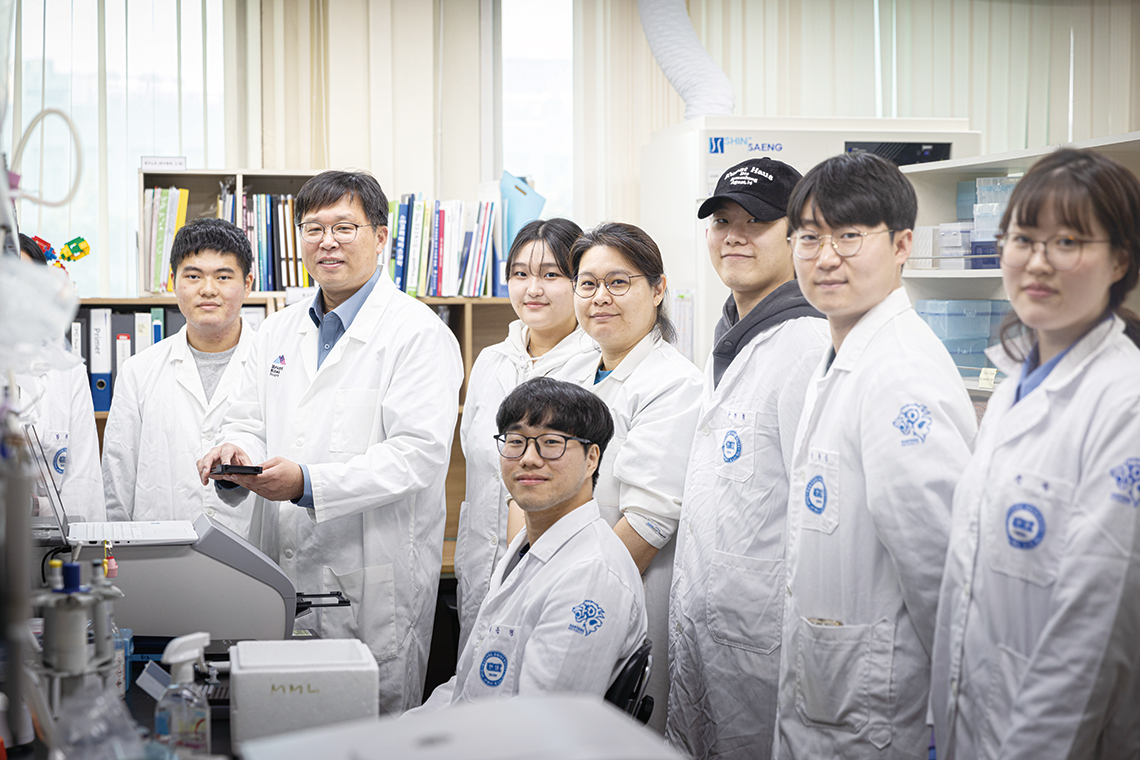 Prof. Jeong is innovatively improving the diagnosis and treatment of cardiovascular diseases, including heart failure to enhance quality of life, and developing bio-medical technologies that are globally competitive.
Prof. Jeong is innovatively improving the diagnosis and treatment of cardiovascular diseases, including heart failure to enhance quality of life, and developing bio-medical technologies that are globally competitive.






